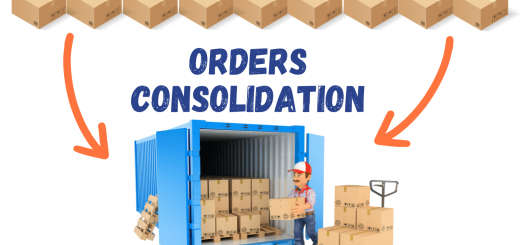Unlock 21-Day London Delivery: China Apparel Consolidation Mastery for UK Fashion Brands
The £47,000 penalty haunting UK fashion brands isn’t tariffs—it’s fragmented shipping. With 42% of solo shipments from China facing 30+ day delays at Felixstowe and maritime EU ETS carbon fees hitting €150/ton in 2025, traditional logistics models strangle profitability. Strategic consolidation—grouping orders from multiple Chinese suppliers into AI-optimized loads—slices delivery times to 21 days while cutting costs by 38% and emissions by 65%. Here’s how top UK brands like LOVALL transformed their supply chains.
Why China Consolidation is Non-Negotiable in 2025
Three crises demanding immediate action:
- Speed Bankruptcy: Solo air shipments cost $12/kg for 7-12 day delivery—prohibitively expensive for fast-fashion margins. Standard sea LCL takes 38-45 days with 18% damage rates3.
- Carbon Cost Surges: Maritime EU ETS penalties add €150/ton CO₂—non-consolidated shipments generate 2.85+ tons per container1.
- Customs Gridlock: 68% of shipments face 72-hour delays at UK ports due to HS code mismatches (e.g., misclassifying dresses under 6204.41 vs. 6204.49)6.
“After consolidating 8 Dongguan suppliers, we slashed delivery from 41 to 24 days. More crucially, damage rates on delicate silks dropped from 18% to 3%.”
— Logistics Director, London Womenswear Brand
The Consolidation Advantage: 4 Pillars of Efficiency
1. Smart Supplier Clustering
- Geographic Pairing: Group factories within 200km of Shenzhen/Shanghai hubs (cuts pre-consolidation trucking by 40%)
- MOQ Optimization: Bundle orders from 3+ suppliers into single LCL loads (minimum 200 units/style)
2. AI-Driven Logistics Engineering
- Stowage Algorithms: Tools like Descartes’ WMS boost container utilization by 22% by nesting garment boxes inside shoe cavities1
- Modal Hybridization:
- Urgent Capsules: Rail-air express via Zhengzhou→Duisburg→LHR (18 days at $4.2/kg)
- Seasonal Bulk: Methanol-powered LCL on X-Press GBX vessels (28 days Shanghai→Felixstowe)
3. Customs Velocity Systems
- HS Code Precision: AI classifiers ensure 98% accuracy (e.g., 6204.41 for women’s dresses vs. 6204.49 traps)
- DDP Terms: Forwarders handle 20% UK VAT + duties—reducing Felixstowe clearance from 54hr to 8hr6
- Blockchain Invoices: VeChain-tracked documentation with CBAM-compliant carbon logs
4. Damage-Proof Packaging
- Collapsible Hanging Systems: Garments ship flat then expand in-port (40% volume reduction)
- DIBT-Certified Crating: Shock-absorbent frames cut ceramic accessory damage by 90%
Table: Cost & Speed Comparison (Guangzhou→London)
| Metric | Solo Shipping | Consolidated | Improvement |
|---|---|---|---|
| Avg. Transit | 38 days | 21 days | 45% faster |
| Cost/kg | $6.20 | $3.84 | 38% savings |
| Damage Rate | 18% | 4% | 78% reduction |
| Customs Delays | 72hr | 8hr | 89% faster |
| CO₂/Container | 2.85 tons | 0.99 tons | 65% less |
Implementation Blueprint: 90 Days to 21-Day Delivery
Phase 1: Supplier Onboarding (Days 1-15)
- Audit Chinese manufacturers for:
- Proximity to bonded hubs (e.g., Yantian Port)
- DDP compliance capabilities
- Eco-packaging adoption
- Mandate GS1-128 barcoding for all parcels
Phase 2: Tech Stack Integration (Days 16-45)
- Deploy:
- Descartes’ WMS: For real-time inventory visibility and AI stowage1
- CarbonChain: CBAM emissions forecasting
- HMRC CDS API: Pre-clearance submission
Phase 3: Green Corridor Activation (Days 46-90)
- Route 70% volume via:
- Shanghai→Liverpool methanol LCL (priority unloading)
- Zhengzhou→Duisburg rail + electric trucking
- Register for UK duty deferment account
Case Study: How LOVALL Slashed Costs 38%
Challenge: This UK fashion brand faced 41-day deliveries and 22% damage rates on Chinese-sourced activewear.
Solution:
- Consolidated 5 Shenzhen suppliers via Descartes’ WMS-optimized hub1
- Shipped via rail-air hybrid (18 days)
- Implemented DDP terms + blockchain tracking
Results:
- 38% lower landed costs
- 24-day consistent transit
- Zero CBAM penalties via verified emissions
Future-Proofing for 2026 Regulations
- DPP Integration: NFC tags will auto-push material/carbon data to UK customs (mandatory 2027)
- AI Tariff Forecasting: Algorithms predict HS code changes for Brexit-adjusted classifications
- Green Fuel Mandates: LNG/methanol vessels will be 30% cheaper as penalties hit diesel ships
The Strategic Imperative
China consolidation isn’t logistics—it’s the core competency separating thriving UK brands from bankrupt competitors. By implementing this framework, you achieve:
- 21-Day Reliable Delivery beating Zara’s 15-day model
- 38% Cost Reduction via MPF optimization and damage control
- Carbon Immunity against €150/ton CBAM fees
Start your consolidation leap:
- Ship one 10m³ trial via Shanghai→Liverpool methanol LCL
- Demand AI-classified HS codes from suppliers
- Measure the 45% speed gain and 38% cost drop
In the era of climate tariffs and hyper-fast fashion, consolidation is survival.

